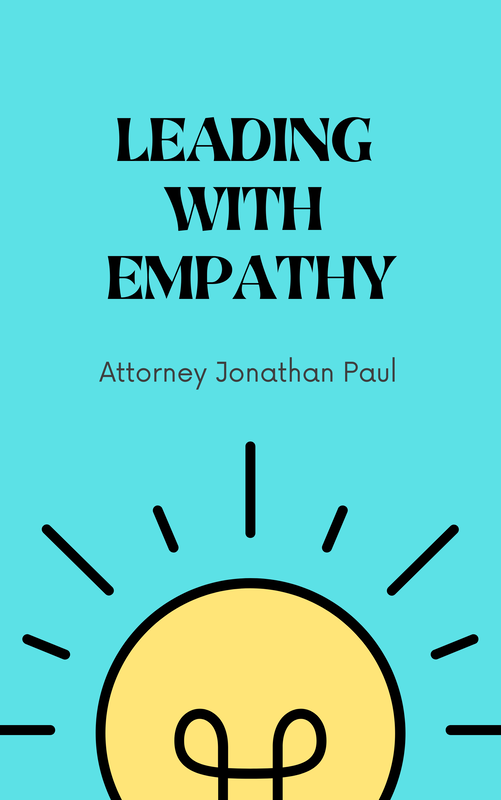Leading with Empathy - Step #15When a client is charged with a crime and makes the decision to lead with empathy, they must establish trust with those involved in the case. By creating an environment of trust, it creates energy and passion in a prosecutor and judge.
For a power broker (judge and prosecutor) to adopt something outside of the status quo, they must trust the path of the client, and the best way to do this is to build trust. Trust is created by creating currency in the case by being proactive; think alcohol test compliance and documentation of counseling and other great proactive steps. A transformational client helps a judge and prosecutor do the unfamiliar, sometimes the impossible. Trust is built by acting with integrity and never promising what you can't deliver; most importantly never taking a short cut or deceiving the court. When a power broker steps outside of their comfort zone, they are taking a personal and potentially professional risk, and trusting you as a client. Real change only happens for a client when they have complete integrity and there is a foundation of trust. Therefore, I ask my clients challenging questions and truly listen to their answers; these challenging questions force a client to become self-empowered because they hear their own thoughts and answers out loud and can't deny the hard truth of change. I can't tell a client what to do, and most of the time a judge and prosecutor's true message doesn't fully register with a client, because telling someone to do something is not effective. By instead asking challenging questions, it allows the client to grow via their own words and thoughts; a client should lead their own change journey, but it takes someone to lead them to the desired outcome. Many people in positions of leadership (like judges and prosecutors) don't like to listen, particularly to people they have already judged as not worth listening to such as clients. If those in power would listen, they would discover the potential in every client that appears in court. The best way to overcome people who don’t listen is to be vulnerable and speak with authenticity which builds trust and commitment from those in power. Telling your authentic story is your source of power when charged with a crime despite the overwhelming opposite happening in court rooms around the country. It’s very natural for a case to start off as us vs them, because formally that is how a case is designed. The People of the State vs the Defendant. This means there is going to be bumps and bruises during the case, and that's ok; conflict in relationships can build trust; disruption stimulates growth and movement on issues. The collective intelligence of those involved in the conflict can overcome the individual parts by filling in the social cracks of the case. In the end, the prosecutor, judge, client and attorneys are just trying to get from A to Z, but we must be process focused, not outcome obsessed. Real life example of leading with empathy and trust The status quo/typical conversation between a client's lawyer and the prosecutor begins with the prosecutor citing all the bad parts of the case and setting a negative tone. This creates an outcome obsessed dynamic where the prosecutor is saying "your client did all these bad things" and putting up his/her sword. I reject this approach and instead lead with trust building; I acknowledge what is in the report, but have the prosecutor agree that neither of us were present when this happened, and there is more to this case than what is in the report. Being informed about the case requires a look under the hood on why it happened, and what can be done in the present and future to create the best outcome for all parties involved. This is where my client can lead with empathy and embrace the process vs obsession with the outcome alone. We work to have the prosecutor look beyond the police report and he/she is educated on what my client has learned from the incident via reflection and proactive steps and has an opportunity to review progress. We work to turn the prosecutor into an advocate and build an alliance before moving on to the judge; it is easier to build consensus with a judge if both sides are supportive of the proposed case journey. We look to expand the pie vs fight over the pie. Comments are closed.
|
Available on AmazonJonathan Paul- X-Prosecutor |
